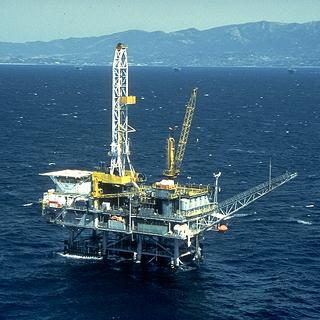Proposed Energy Plan to achieve energy independence

This Blog was written by a guest writer who worked in the Energy sector for Bechtel for many years.
Simplified Energy Plan
by Enrique Goldenberg
A few elements of a simplified energy plan.
Considerations:
1. Elimination of our dependency on foreign oil
2. Utilization of nuclear energy
3. Electrification of public transportation
4. Private automobile and trucks power sources
This plan has to be implemented at the Federal level.
Implementation of the above considerations will bring:
1. Clean air and less impact on global warming
2. Economic boost due to the creation of new infrastructure and supporting facilities
3. Reduction of balance of payments
4. Elimination of our indirect financing of terrorist activities
Elimination of our dependency on foreign oil
Introduce legislation to activate a “Manhattan Type Project” to eliminate within three years our dependency on foreign sources of energy. There are enough technologies available to gasify coal, produce alcohol or other bio fuels from sugar beets, corn, wood, and other genetically engineered crops, that it is feasible to develop these to the point of economically replacing imported oil. This technology, when fully developed, should be shared free of cost to other countries that are interested in pursuing it. Our participation, if any, could be selling the plants to produce the fuel.
An immediate consequence of this legislation will be the fall of the value of a barrel of oil to $10 to $20/barrel. We are talking about $5 a gallon of gas if we take on Iran…
(In other words screw the oil cartel!)
Utilization of nuclear energy
Nuclear power plants, as developed by Utilities, make economic sense if they are located close to a cooling water supply and to centers of consumption. Pumping costs are dependent on pumping distance. Transmission losses are to be minimized. There is then the problem of cost versus public acceptance of a plant in their backyard. At a national level, nuclear fuel is good for power generation or to make nuclear weapons. If we locate nuclear power plants at the nuclear reservation sites in the USA; Idaho, Richland, Savannah River, etc. there is no public controversy regarding the siting of the plant and the cost of extra pumping and longer transmission lines costs are absorbed by the federal government. These costs are balanced against the cost of capital during the licensing process; years for a site close to population centers, cero or minimal for remote locations on federal property.
There are several advanced, passive reactors developed by GE and Westinghouse, already licensed by the NRC, that can be on line in three or four years. There is a second alternative that it is even more appealing, the standard navy vessel reactor. Westinghouse and GE manufacture this reactor for the nuclear navy. This power plant can be mounted on skids as a module in energy parks, run by the navy as training facilities and can be used as spares for the nuclear vessels in case of need.
Another advantage of nuclear power plans is that they can be used to generate Hydrogen as a fuel for future fuel cells.
Electrification of public transportation
Public transportation should be run as a semi-private corporation, financed by the States or Federal Government. Electrification of intercity trains and use of rapid transit systems as BART, light rail and/or trolley buses should be the goal for the next few years. There will be no Diesel buses in any city. Clean burning bio diesel or alcohol fueled buses will be the only accepted in cities or towns with small population (to be defined). The program should follow closely completion of power plants that will supply the necessary electric energy to run the transportation system.
Private automobile and truck power sources
A law should be introduced requiring that all private vehicles should, within 5 years, be at least hybrids or provide an efficiency of 40mpg. Trucks that are not hybrids should burn flexible fuels; gas, alcohol or bio diesels.
Next generation, 5+ years should incorporate vehicles powered by fuel cells using the hydrogen generated by the nuclear electric energy surplus.
In summary, the implementation of the above plan will bring economic prosperity to the United States and other countries by creating thousands of new jobs and new industrial facilities, clean the environment and make us immune to the fluctuation of oil prices and other energy commodities. The cost of importing oil will be then spent internally with great benefit to the balance of our foreign trade. The sharing of the fuel technologies with other countries that are large oil consumers; China, Japan and the European Union, will decrease the influx of hard currency to the oil producing countries that finance world terrorism and hijack the free economies of those countries.
-----------------------
OK, Enrique put forth a Plan that would get significant support. Where is the Bush Administration's Plan? Any other ideas?
0 Comments:
Post a Comment
<< Home